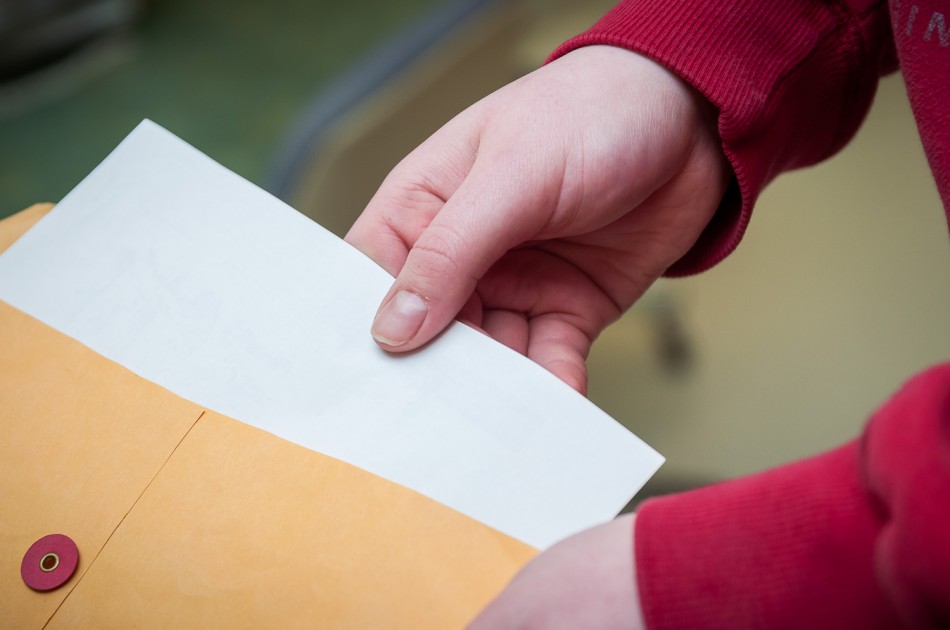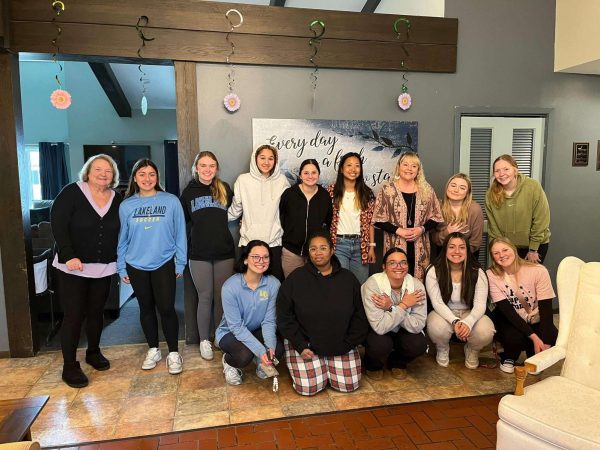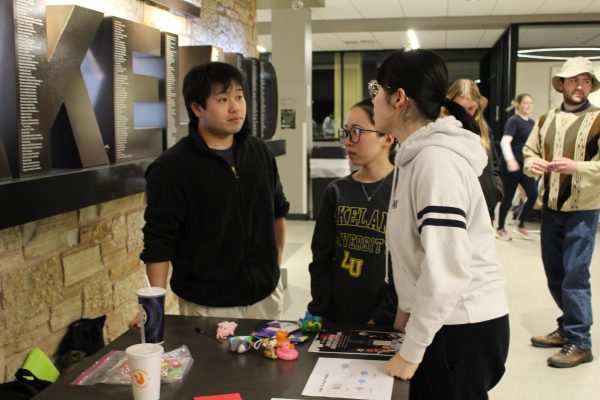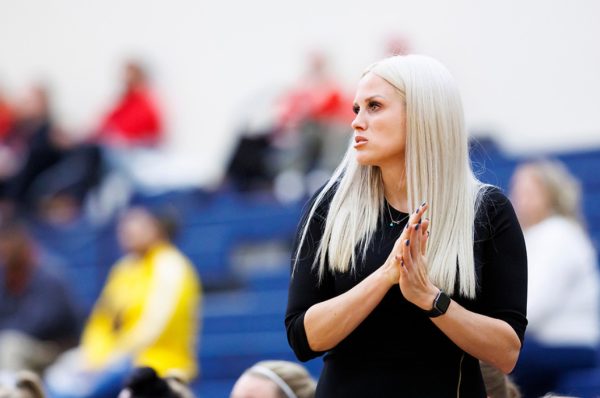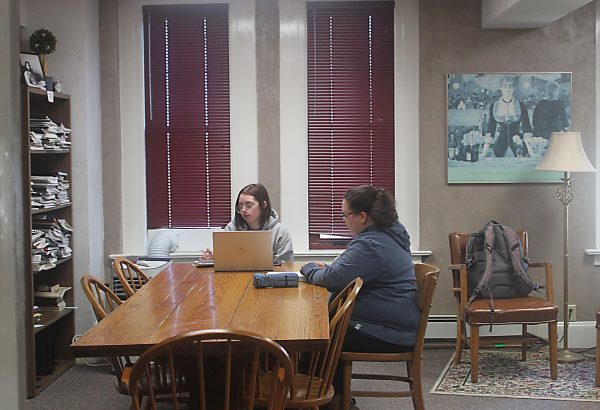Dean explains professor evaluation process
Teacher evaluations include bubble and short answers, which allow students to reflect on the class and give feedback to the professor.
February 18, 2015
Filling out professor evaluations at the end of each semester is a standard procedure for most Lakeland College students, but few individuals know exactly what happens to the sheets after slipping them into the yellow clasp envelopes and whisking them away to the dean’s office.
According to Meg Albrinck, vice president for academic affairs and dean of Lakeland College, a new software package processes the evaluations by scanning the bubble answers into a copy machine which tabulates the averages for the course, division and college for each question.
If the faculty member has tenure, the evaluations are reviewed toward the end of the year with the division chair during a faculty performance review.
“At that point, if there are patterns of comments or distinct differences in the individual’s averages compared to that of the college or division, the supervisor can talk about that with the employee,” Albrinck said.
According to Albrinck, if the faculty member does not have tenure, they are asked to produce a self-evaluation prior to conversing with the division chair. The self-report and the evaluations are assessed by the academic personnel review committee and the information affects the annual renewal process for those faculty members.
Although faculty members who have tenure do not meet with the academic personnel review committee, the college does take action if evaluations reveal the professor is not performing well.
“There could be a written warning—an improvement plan, which if not met, could be cause for dismissal,” Albrinck said. “The college does have some capacity to either modify the person’s role to play to their strengths, or if it’s not working out at all, the person and the college could agree to go their separate ways.”
Brittany Beckmann, senior writing and vocal performance major, feels the effectiveness of evaluations is limited.
“I’ve been in a plethora of classes where my peers and I were unsatisfied with the professor. The only time when it seemed the evaluations held any weight was when we were evaluating non-tenured, adjunct faculty,” Beckmann said. “Not all tenured faculty members are poor teachers; I’ve had very few negative experiences with them. I still wonder if anyone besides Albrinck’s student worker actually reads the evaluations.”
Evaluation sheets are comprised of bubble answers and a short answer portion. Another question on some students’ minds is whether Albrinck’s assistants type the feedback on evaluation forms to secure anonymity for students with identifiable handwriting.
“We don’t have enough staff or time to type all the comments. The software we use scans only the bubble answers; it doesn’t move handwriting into typed feedback,” Albrinck said.
However, Albrinck said that students have options if anonymity is a concern. Some individuals give typed commentary to the dean’s office or bring their own typed answers to class on the day of evaluations.
Students in the Evening, Weekend and Online program submit typed evaluations electronically, but the response rate is far lower for electronic evaluations than having students perform them in class.
“If we could find a way to have online evaluations done in class, maybe we could find that happy medium between a high response rate and the protection of identity,” Albrinck said.
Katie Amundsen, senior writing and English major, does not often have negative feedback on professors, so she is not concerned with her anonymity but can sympathize with other students’ dilemma.
“Many of us take classes with the same professor more than once. I can understand why some students are concerned about anonymity,” Amundsen said. “I think that switching the evaluations to an online system is a good idea, but there’s the concern that people won’t do them. At Marquette, if you did your evaluations, you were entered into a drawing for a prize, something nice like an iPad.”
According to Albrinck, the school is still exploring an online platform for evaluations but wants students to know that the administration values student comments and takes evaluations seriously.
“I know it can be hard to do the fifth or sixth student evaluation in a semester, but every class and faculty member is different,” Albrinck said. “If there are even just a few comments about what was working well or what was not, that helps us as teachers improve.”

